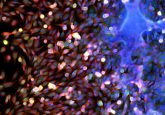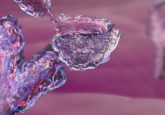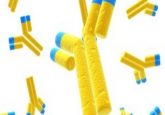Genomic analysis reveals prevalence of high-risk leukemia subtype increases with age
Over a quarter of young adults with the most common form of acute lymphoblastic leukemia (ALL) have a high-risk subtype associated with poor prognosis. Such patients may benefit from drugs widely used to treat other forms of leukemia more common in adults, according to a study led by investigators from St. Jude Children’s Research Hospital (TN, USA) and published in The New England Journal of Medicine.
This research focused on a subtype of ALL known as Philadelphia chromosome-like ALL (Ph-like ALL), first described in children in 2009. This investigation observed the prevalence of Ph-like ALL to increase with age and to be associated with poor survival. This discovery was the result of a genomic analysis of 1725 patients aged 1–39 years with the most common form of ALL (B-ALL). Researchers used next-generation sequencing to identify the genetic alterations that give rise to Ph-like ALL, including some involving genes not previously linked to cancer. The results highlight the genetic diversity of Ph-like ALL while also demonstrating that alterations have effects on a limited number of signaling pathways, particularly those controlling cell growth and proliferation.
Combining these findings with earlier work, foundations have been laid for clinical trials to determine whether tyrosine kinase inhibitors (TKIs) could improve patient outcomes. A nationwide study aiming to assess this question in children is scheduled to begin before Spring 2015.
“We showed that Ph-like ALL is a common disease that spans the age spectrum, and we identified new genomic alterations that converge on a handful of signaling pathways that are vulnerable to treatment with TKIs,” explained corresponding author Charles Mullighan (St. Jude). “The findings lead the way for clinical trials that could help to transform the outlook for patients regardless of age.”
TKIs are currently widely used to treat other types of leukemia more common in adults. The drugs have been used in a small number of patients with Ph-like ALL thus far. It is hoped that the identification of new leukemia subtypes susceptible to targeted therapies, such as TKIs, will lead to improvements in patient outcomes.
Sources: Roberts KG, Li Y, Payne-Turner D et al. Targetable Kinase-Activating Lesions in Ph-like Acute Lymphoblastic Leukemia. NEJM. doi 10.1056/NEJMoa1403088 (2014) [Epub ahead of print]; St Jude Children’s Research Hospital News




